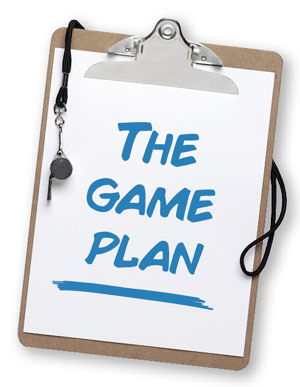
Illustration: tadamichi / iStock / Getty Images Plus / Getty Images
Assessment tests have emerged as a powerful tool for employers seeking the perfect hires for their teams. Gone are the days of relying solely on resumes and interviews; now, companies are delving deeper into the intricacies of the human brain to make informed hiring decisions. The concept of understanding the three parts of the brain — cognitive, affective and conative — can revolutionize your approach to finding the right candidates.
1. Cognitive assessments: Unveiling skills and learning
The cognitive domain of the brain encompasses skills, knowledge and learning abilities. Traditional hiring methods often focus on this aspect, with resumes and applications serving as primary indicators of cognitive prowess. However, modern recruitment strategies go beyond surface-level assessments.
Employers are now creating their own assessments tailored to test the specific skills required for the role. For instance, simple math tests or proficiency assessments in software programs such as Microsoft Office can provide invaluable insights into a candidate’s capabilities. By designing targeted assessments, employers ensure they’re evaluating candidates based on the skills directly relevant to the job.
2. Affective assessments: Uncovering values and alignment
Understanding the affective domain of the brain delves into the realm of values, motivations and personality traits — the driving forces behind an individual’s actions. While resumes may list qualifications, they often fall short in revealing whether a candidate aligns with the company’s core values and culture.

Sheri Spencer Bachman
To address this gap, employers are incorporating affective assessments into their hiring processes. Certain tools, such as DISC (DISCProfile.com), help provide insights into an individual’s values, communication style, and interpersonal dynamics. By asking questions centered on company values and utilizing these assessments, employers can gauge cultural fit and predict how well a candidate will integrate into their teams.
3. Conative assessments: Understanding information processing and work style
The conative domain of the brain encompasses how individuals gather information, organize tasks, handle risk and change, and utilize tools — a crucial aspect of job performance often overlooked in traditional hiring practices. Understanding how a candidate approaches work can have a significant impact on their success within a role.
Employers are recognizing the importance of conative assessments in identifying candidates who not only possess the necessary skills but also exhibit compatible work styles. Among these assessments, the trademarked Kolbe A Index (Kolbe.com) stands out as a tool for evaluating an individual’s conative abilities. By assessing how candidates naturally approach tasks, handle challenges and collaborate with others, employers gain valuable insights into their potential for success in the role. (Full disclosure: I am a Kolbe Certified Consultant.)
In today’s competitive job market, the reliance on assessments has become indispensable. By leveraging the insights provided by cognitive, affective and conative assessments, employers can navigate the complexities of hiring with confidence, ultimately building teams that thrive.

Photo: DNY59 / E+ / Getty Images
Three parts form a whole
By comprehensively assessing candidates across all three domains of the brain — cognitive, affective and conative — employers gain a holistic understanding of the individual. This multifaceted approach enables them to make more informed hiring decisions, increasing the likelihood of finding the right person for the right seat.
Leave A Comment